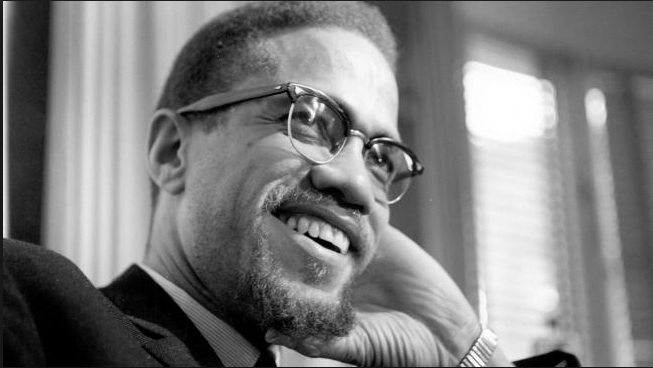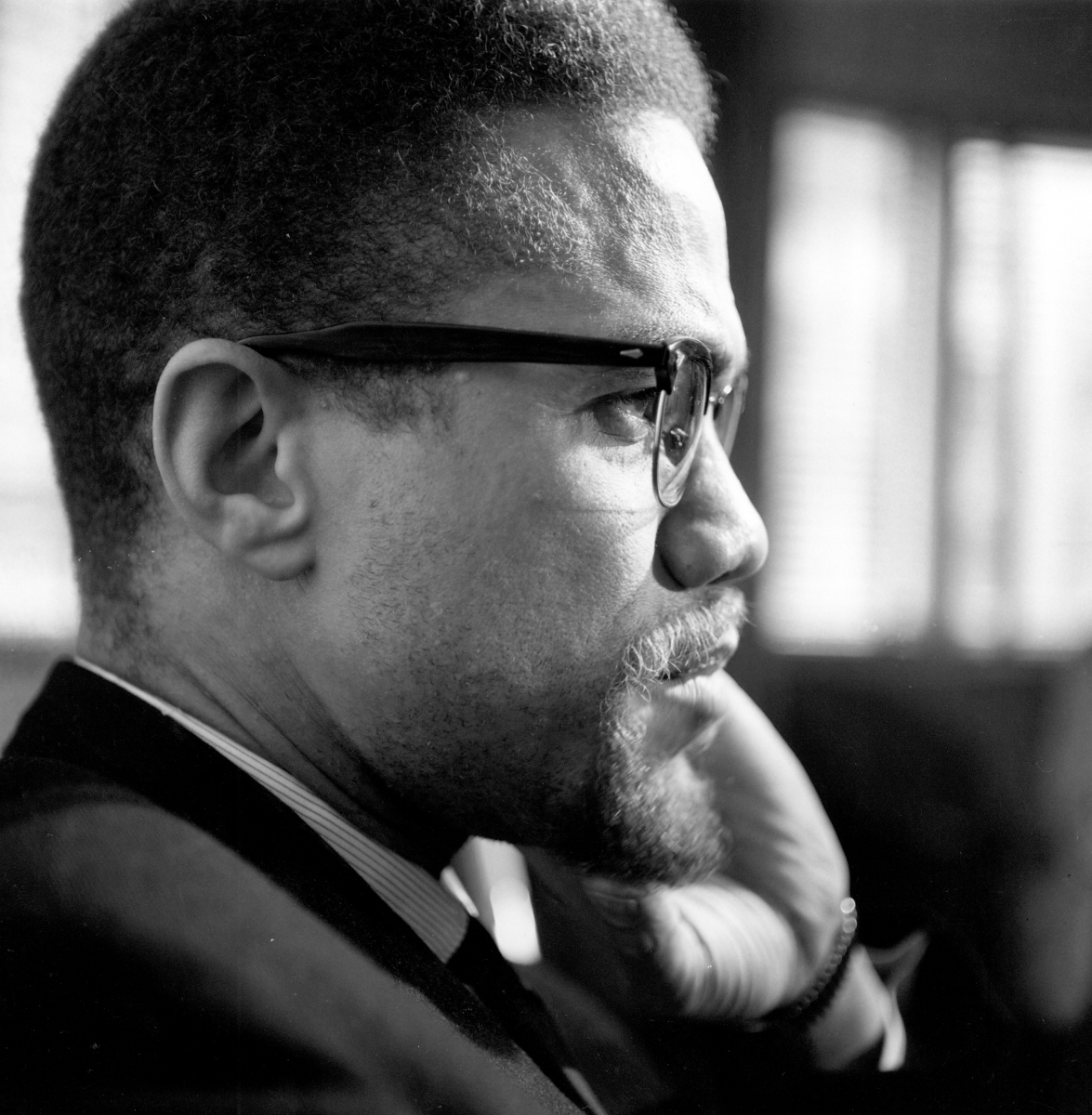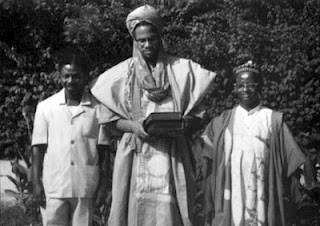“I’ve been marked for death within the next five days.”
By early 1965 most of Malcolm’s closest friends were afraid for his safety. They believed that without a change of course he would soon died. Various African governments had offered him positions; Ethiopia had been willing to grant sanctuary; the Saudis would have permitted both him and his family to live in the kingdom as guests of the state. The entire expatriate community in Ghana urged him to bring Betty and the children to Accra. Even a nervous Ruby Dee had suggested hiding Malcolm behind a secret wall in her home, a plan vetoed by her husband, Ossie Davis.
According to Malcolm X, “This thing with me will be resolved by death and violence.”
“It seems as if Malcolm made the conscious decision not to avoid or escape death.” That his life would be resolved by death and violence, became true. These are the last days of Malcolm X related by Manning Marable and Karl Evanzz.
On February 14, when a bleary-eyed Malcolm disembarked at Detroit airport at 9.30am and checked in at the Statler Hilton hotel, his friend were worried for his safety. His home had just been firebombed, and his wife and children were in hiding. His coat stank of smoke; he had grabbed the clothing from the half-burned residence. Since been shaken from sleep by the firebombs he had not slept. A friend gave him a sedative and Malcolm napped briefly because he had a schedule to keep and soon he was awakened to be interviewed by WXYZ-TV. He was then taken to the Ford Auditorium, where he delivered the keynote address at the first annual Dignity Projection and Scholarship Award.
Back in New York, a media circus had gathered outside the charred wreckage of his home. The Molotov cocktails had totally destroyed two of the rooms and left three others severely damaged. Malcolm arrived back in New York on February 15, and spent part of the day checking on damage to the house and conducting interviews.
For a second day, Malcolm was working without sleep. That morning he spoke with the New York Times, telling them that he lived “like a man who’s already dead… This thing with me will be resolved by death and violence.” Later that morning he was interviewed by an ABC camera crew. Later in the afternoon, he delivered what would be his final public address, stating that the Black revolt in the US “is part of the rebellion against the oppression and colonialism which has characterized this era.”
The day then took him to the home of his friend Gordon Parks, the great photographer. Malcolm told Gordon, “Brother, nobody can protect you from a Muslim but a Muslim.”
During this same week, about sixty MMI and Organization of Afro-American Unity (OAAU) members met to discuss the firebombing and its security implications. “We said that from that day forward every person that came to one of our rallies was going to be searched, and this is where we made a crucial error – Malcolm overruled this because he wanted to break away from this image of searching people before thy came to one of our rallies.”
On Saturday, February 20, Malcolm and Betty went to look for a new place to live. That afternoon, he also called Alex Haley to check in on the state of the manuscript. As night fell, Malcolm dropped Betty off at the home of Tom Wallace, where he stayed and talked for several hours before leaving to check in to the midtown New York Hilton, paying eighteen dollars for a single room on the twelfth floor. Later that night, several African American men entered the Hilton lobby asking for Malcolm’s room number. Someone contacted the hotel’s head of security, who confronted the men. They promptly left.
On Sunday, February 21, as his black 1963 Oldsmobile sedan approached the popular Audubon Ballroom in Harlem, where he was scheduled to speak at a regular meeting of the OAAU, Malcolm looked in his rearview mirror. He saw nothing suspicious, but was still unable to shake the sensation of being stalked. Fearful that he might be shot while driving he parked his car about a mile and a half south of the Audubon Ballroom, got out and walked to a bus stop.
Moments later a car pulled up, with a friend, who offered him a lift. After they arrived at the ballroom a few minutes, Malcolm hurried backstage, “I really shouldn’t be here today,” he told someone. He also said that he felt something evil was in the air.
One by one all of those invited to speak that afternoon called to cancel their engagements. The crowd grew increasingly restless. Exasperated, Malcolm finally told an aide to get things underway. Malcolm had only been on the stage for a few moments when suddenly two young Black men seated near the stage began scuffling.
“Nigga git yo’ hand outta my pocket!” one of them shouted.
“Hold it, brothers! Cool it!” Malcolm said. “Don’t get excited. Come on, lets cool it.”
As Malcolm X extended his right hand toward the two Black men, one of them pulled out a German Luger out of the other’s overcoat and shot Malcolm in the chest. As he fell backward, a third man threw a smoke bomb into the air, creating pandemonium. A fourth Black man, armed with a sawed-off shotgun, rose from the third row and shot Malcolm in the chest. As he fell to the floor, another gunman shot him in his left leg and hand. And another conspirator fired shot after shot at Malcolm.
As the shooting went on Betty screamed out, “They’re killing my husband!” Finally rising to her feet, she began to run towards Malcolm, sobbing and screaming.
When the police finally showed up, one woman yelled, “Don’t hurry, come tomorrow!”
“The assassins killed the dreamer but not the dream. This dream is the legacy he left us.” (Dr. John Henrik Clarke)
What was his dream?
“I am a Black man in a world dominated by white oppression and that is my philosophy. I would like to get rid of that oppression and that is my total objective.” ~Malcolm X
Source:
“The Judas Factor” by Karl Evanzz
“Malcolm X: A Life of Reinvention” by Manning Marable
“Malcolm X: The Man and His Time” by John Henrik Clarke






